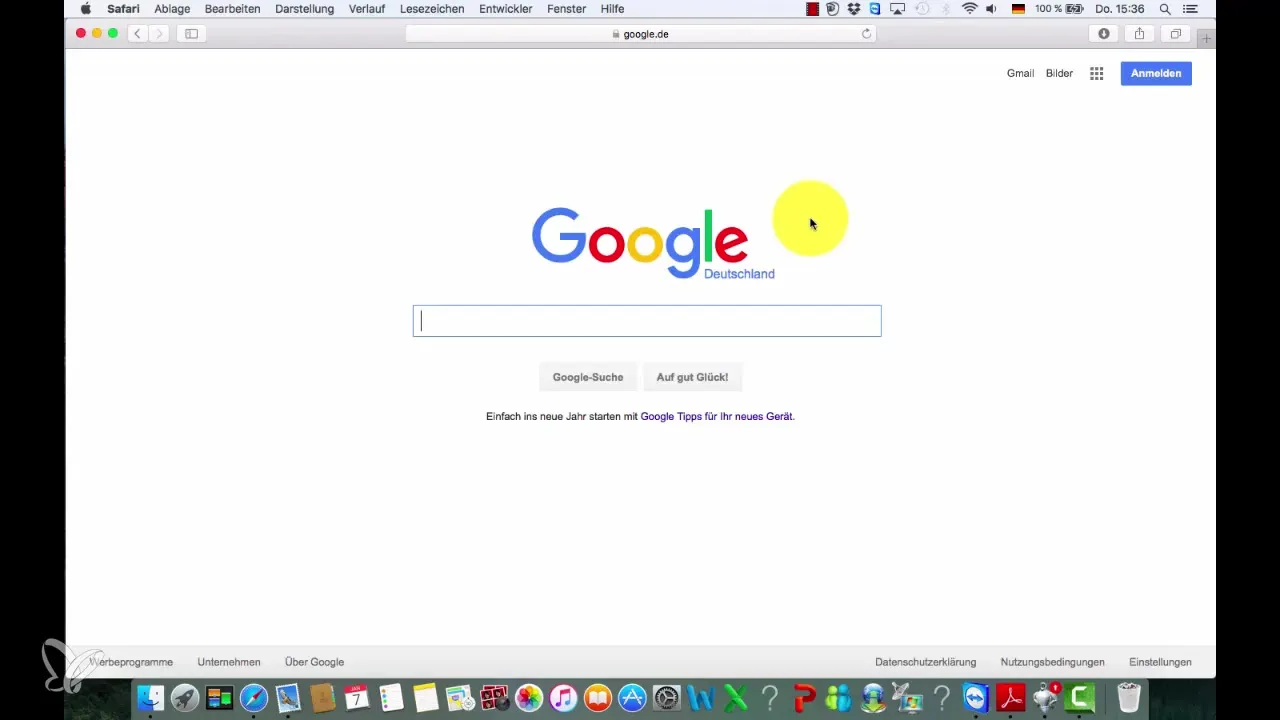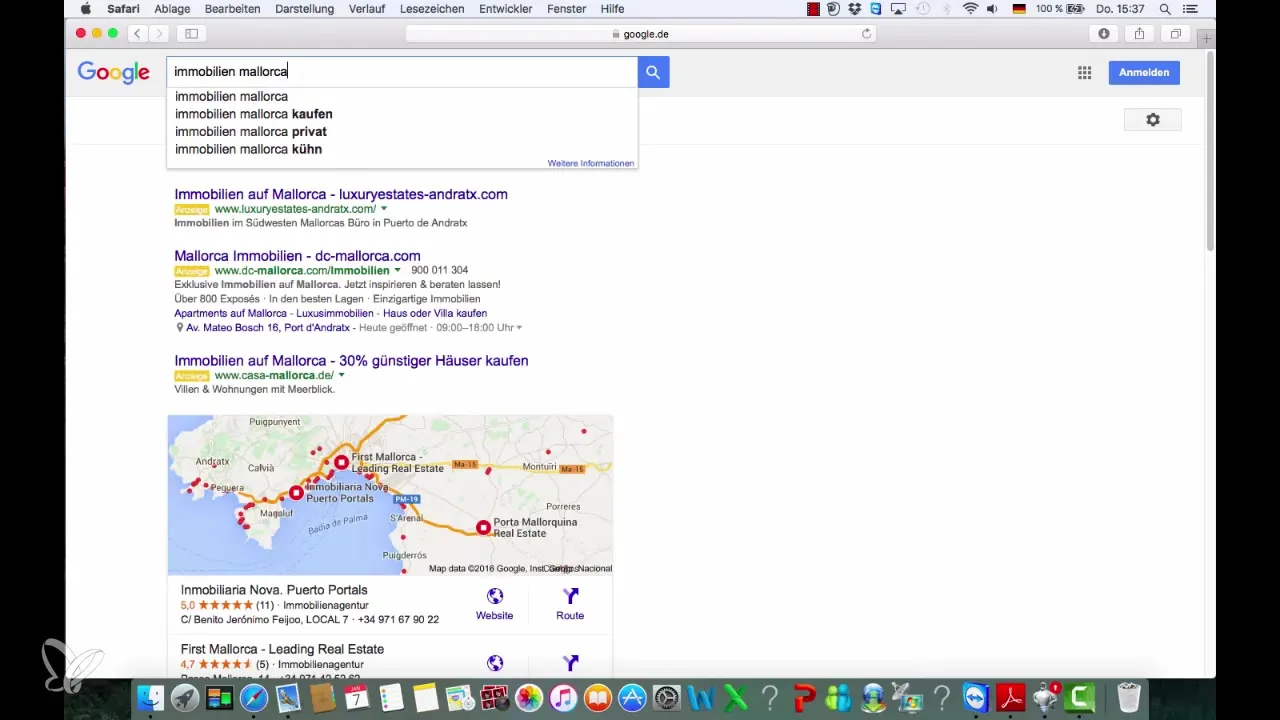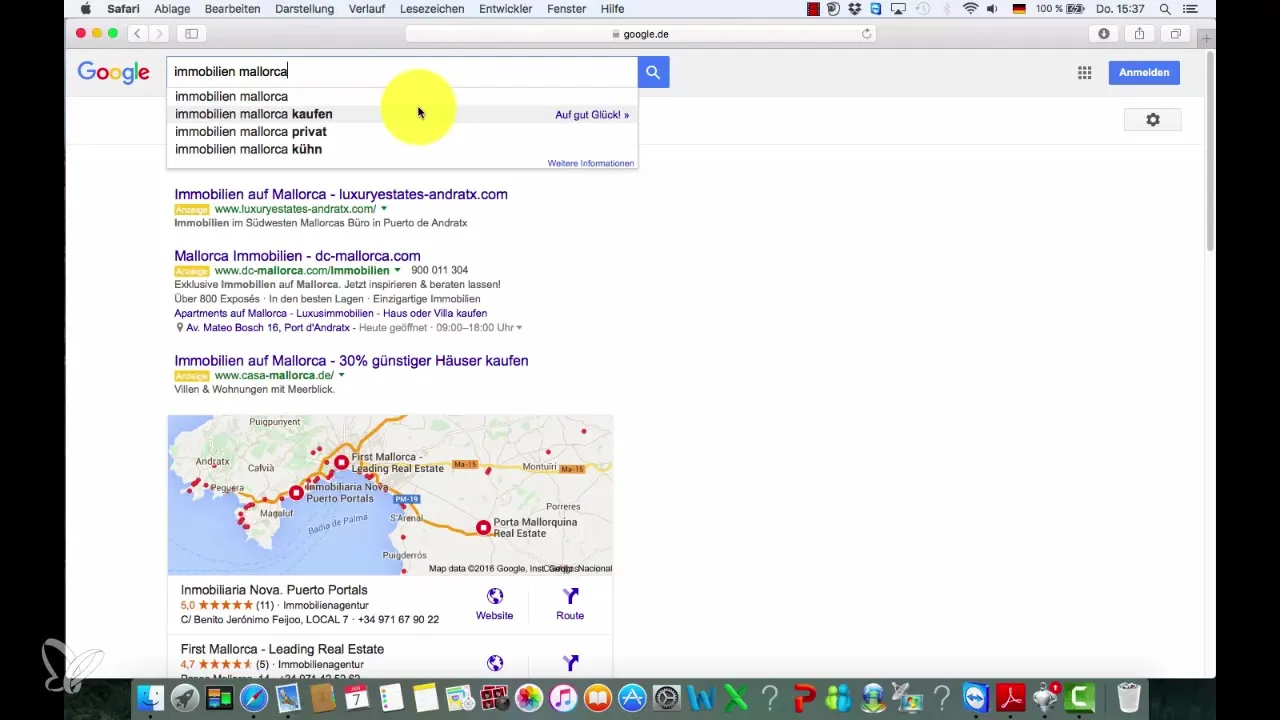Do you want to find lucrative keywords for your business? Instead of relying on the classic Google Keyword Planner, there are alternative methods to research targeted "buy" keywords. These approaches are not only effective but also allow you to better target potential customers and reduce your advertising costs. In this guide, you will learn how to identify valuable keywords using Google Search and creative thinking. Let's start with the key insights.
Key Insights
- The Google Search can provide you with valuable clues about frequently searched keywords.
- The combination of specific search terms increases the chance of conversions.
- Niche-specific keywords can be more cost-effective and generate higher-quality leads.
- It is advisable to avoid general and highly competitive keywords.
Step-by-Step Guide
Step 1: Enter Base Keyword
Start your research by entering a base keyword such as “Real Estate Mallorca” into Google Search. Pay attention to what is displayed in the dropdown menu below the search box. Here you will find frequently searched variations and additional ideas for purchase keywords.

Step 2: Advanced Search Queries
Experiment with variations of your base keyword by adding spaces and specific terms. For example: “buy real estate Mallorca from private”. This method helps you better understand the needs and desires of your target audience.
Step 3: Explore Additional Combinations
You should not stick to a single keyword. Consider searching for new terms and combinations related to your topic. Often, this will yield interesting and unexpected results that you can integrate into your advertising.
Step 4: Focus on Niche Keywords
When entering specific niche keywords such as “Long-term rental Mallorca” or “buy village house,” pay attention to how often these terms are searched by users. The more specific your keyword, the greater the likelihood that users searching for this keyword will actually have an interest in your offer.
Step 5: Identify Acceptable Price Ranges
Terms like “Rent up to 500 €” might also appear on your radar. Analyze the suggestions that are shown to you in Google Search. Such information can help you better structure your offer and tailor it to your customers' needs.

Step 6: Selecting Suitable Keywords
Now, gather all relevant keywords and select the ones that best fit your offer and are realistic. Combine these in your Google Ads campaigns and create different ad groups for specific keywords.
Step 7: Create Ad Groups
Implement the keywords you have found into ad groups that are specific to your offer. For example: If you rent out properties in Mallorca, create separate ad groups for “Long-term rental,” “Vacation apartments,” and “Village houses.”
Step 8: Monitor Results
After running your ads, you should regularly monitor the performance of the chosen keywords. Pay attention to which keywords generate the most clicks and conversions, and optimize your campaigns accordingly.

Step 9: Continue with Niche Strategy
Stick to your keyword strategy in the niche and avoid generally competitive terms if the advertising costs seem too high. Niche keywords often offer financially cheaper options and attract higher quality leads.
Summary - Alternative Methods for Keyword Research for Google AdWords
Researching keywords for Google AdWords does not have to be limited to the Keyword Planner. By using Google Search and experimenting with various combinations, you can gain valuable insights and make your ads more effective.
Frequently Asked Questions
How do I find lucrative keywords without the Keyword Planner?Type relevant search terms directly into Google Search and use the autocomplete suggestions.
What are niche keywords?Niche keywords are specific search terms that target a specific audience, often with higher purchasing intent and less competition.
How can I use the identified keywords in my advertisement?Select the most relevant keywords and create separate ad groups for them to run targeted advertising.
How often should I check the performance of my keywords?It is advisable to regularly monitor the performance of your keywords, at least once a week, and make adjustments.
Why should I avoid general keywords?General keywords are often more expensive and have higher competition, which can lead to a lower return on your advertising spend.


